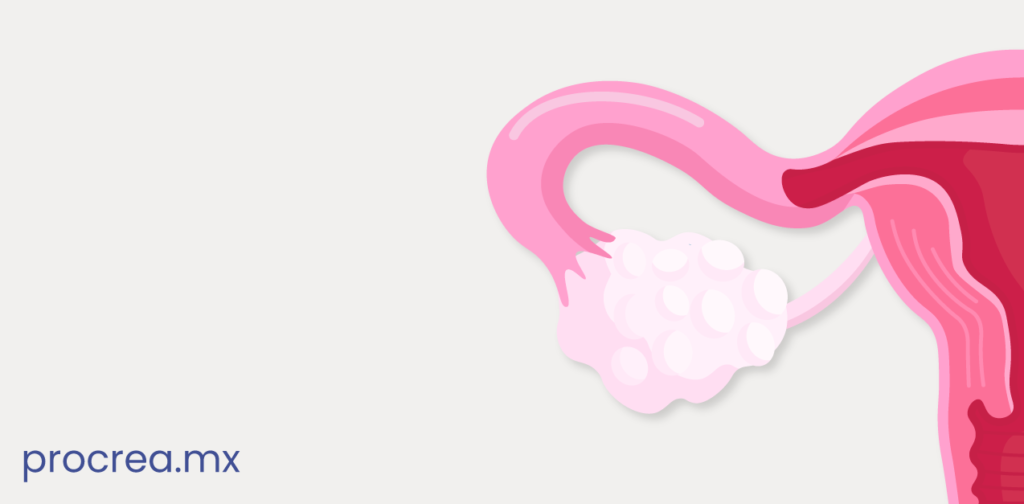- Polycystic ovarian syndrome (PCOS) is a pathology that affects 1 in 10 women of reproductive age. This condition is associated with infertility due to different factors such as ovulatory dysfunction or abnormal menstrual periods.
What is it?
- Polycystic ovarian syndrome is a hormonal disorder in which women present an imbalance in androgens and estrogens, that is, more male hormones are produced than normal. These alterations make it difficult for the ovaries to release mature eggs and contribute to metabolic problems related to cardiovascular diseases. Some of the symptoms that occur are:
- Menstrual Irregularities
- Difficulty getting pregnant
- Skin problems such as acne and increased hair
- ovarian cysts
- Insulin resistance (increased risk of developing diabetes)
- womb cancer
- Pelvic pains
- Ovarian enlargement
Can I get pregnant with Polycystic ovarian syndrome?
One of the effects of polycystic ovarian syndrome is associated with infertility because ovulation does not occur regularly. During the menstrual cycle, one or more eggs are released and in many women diagnosed with PCOS, the mature eggs are not released because fluid is generated in the ovaries. There are 4 or 5 ovulations a year instead of 12. However, there are treatments to regulate periods and induce ovulation.
It is important to note that once a pregnancy is achieved, women with PCOS are prone to miscarriage, gestational diabetes, or preeclampsia, but the risk can be reduced by maintaining a healthy weight, maintaining stable blood sugar levels before becoming pregnant, and taking folic acid.
Recommendations
If you want to increase the chances of pregnancy, it is recommended to maintain a good body mass index to regulate the menstrual cycle and keep the insulin level stable. In the absence of a specific treatment for its cure, sometimes, with diet, physical exercise, and some food supplement, ovulation is usually restored. However, it is necessary to see a specialist so that he can guide you in the best way and make a timely diagnosis.
Most women are diagnosed with this condition between the ages of 20 and 30 or once they go to the gynecologist, so it is essential to carry out constant check-ups. Polycystic ovaries are detectable on ultrasound or ultrasound, and symptoms often begin when the menstrual period begins.
Women with Polycystic ovarian syndrome who try to get pregnant may take longer, so resorting to fertility treatments is common. In Vitro Fertilization (IVF) can be an option since by carrying out fertilization in a laboratory and later implanting it in the uterus for its development, the pregnancy success rate is higher, and it is also possible to control the risks.
If you want to consult a specialistMake an appointment or contact us so we will be able to assist you in your process.















